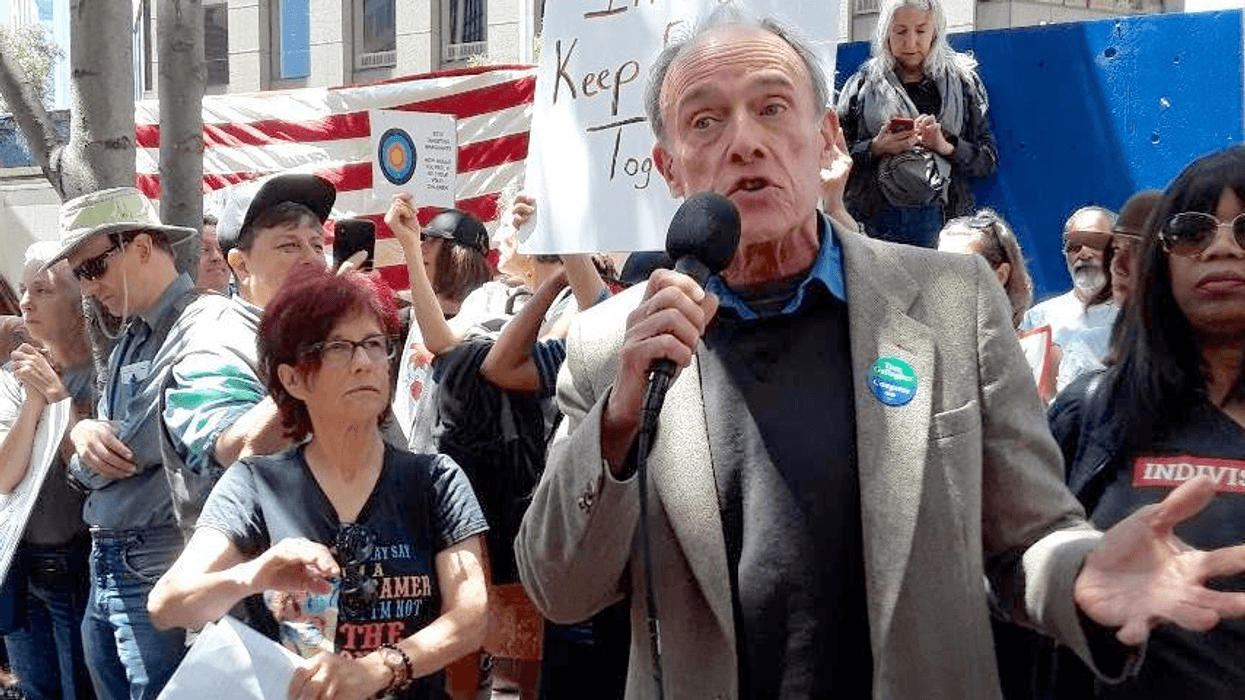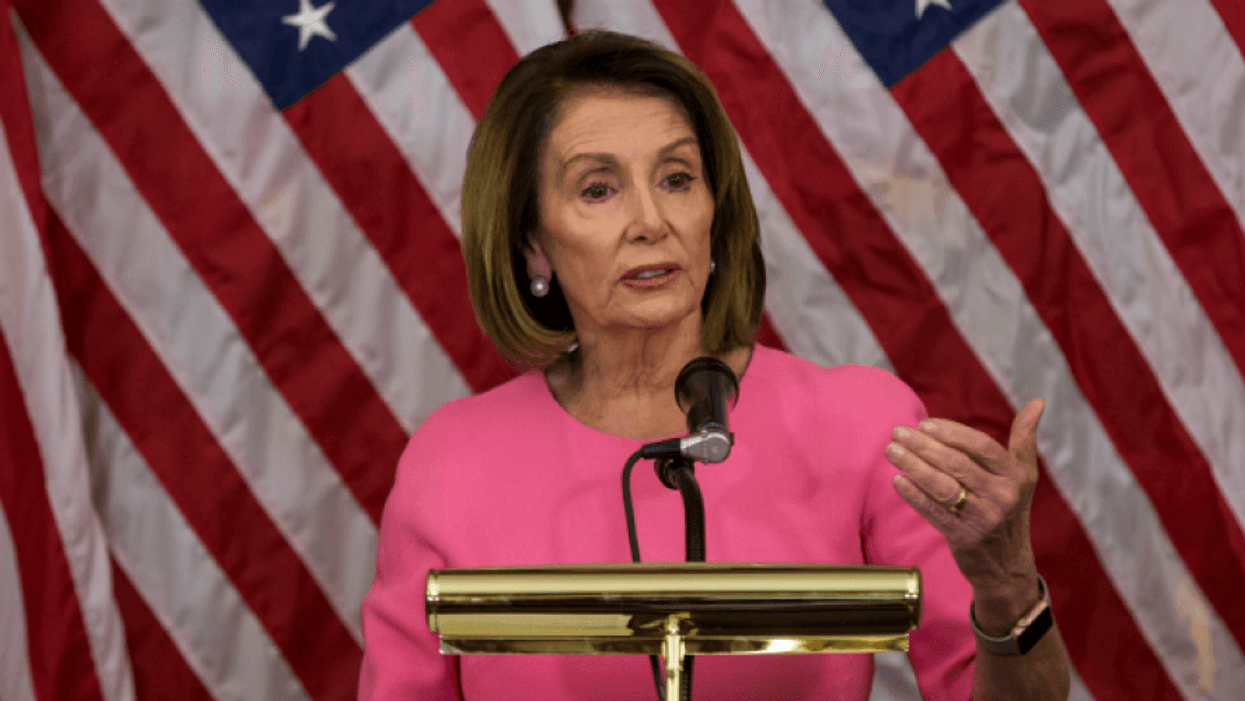Following the end of the Cold War, "third way" neoliberal politicians like Bill "the era of big government is over" Clinton, Tony Blair (UK), Junichiro Koizumi (Japan), and others embraced the view that making the rich richer by privatizing public services, cutting taxes, and deregulating finance would somehow create wealth that would 'trickle down' - they would just do it, unlike their conservative counterparts, with a smiling face and a more diverse cast. This has failed spectacularly: the deficit is up, debt is up, wage growth has stalled or declined, business investment has slowed, rents are skyrocketing, and more people are starving and homeless. Nowhere is this clearer than in San Francisco, where nearly 400 people have died on the streets since 2016 amid empty, luxury developments. Even worse, by moving their respective center-left parties to the right, the third way politicians left a space for the far-right to provide "answers" to this economic failure in the form of the racist, anti-Semitic, anti-immigrant politics we are now living through. Gallagher's record provides a bold contrast to this rightward drift: he was resisting neoliberalism before we called it neoliberalism.
Raised in the working class Hunts Point section of the South Bronx to an immigrant Irish father, Gallagher was a precocious child, always with a book in his hand to avoid wasting any time, a habit he maintains to this day. He received a scholarship to the Jesuit-run Regis High School in Manhattan where he excelled at his studies (including Latin and Greek), even receiving second place in the Cardinal's Christian Doctrine Examination (finishing just behind a future priest!), and later going on to study philosophy at Boston College. The author of hundreds of essays, articles, and book reviews, as well as a very funny book about his career as a substitute teacher (Sub: My Years Underground in America's Schools), Gallagher belongs to the long line of left writer/activist/politicians, stretching from George Bernard Shaw (Gallagher, like Shaw, is a vegetarian), through Tony Benn, to Arundhati Roy, and Ralph Nader - witty, verbal activists who held out for truth as their parties lazily slid to the accommodating right. A clear writer, with an almost Samuel Beckett-like curmudgeonly candor ("Some see in human adolescence proof for the nonexistence of God, while others argue the opposite - that it demonstrates that there is, in fact, a God, but a malevolent one.") - Gallagher's philosophical/theological intellectual background, combined with this working class roots, makes him a formidable foe to any third way centrist. He knows of what he speaks. But will people listen?
Gallagher was first elected to public office in 1980, representing the Allston Brighton section of Boston in the Massachusetts House of Representatives. Affectionately dubbed "Tommy the Commie", Representative Gallagher - who was a member of the Boston DSA - became the first declared socialist state representative in Massachusetts since the 1920s and proved himself a champion of working people in the area. He stood up for rate payers against Boston Edison which wanted to pass the costs of the energy company's failed Pilgrim II nuclear plant on to consumers. At a time when other Democrats were preaching an "era of limits" (in Jerry Brown's phrase) and pushing for public service reductions, Gallagher rallied to the side of frustrated constituents, speaking in the rain to a crown of 150 community residents protesting the closure of a local police substation. In the early waves of deindustrialization, Gallagher was working on bills for the Massachusetts state legislature which would have required companies to give employees advanced notice of a factory closure (providing the opportunity for the state and unions to step in to save jobs). None of these positions earned the love of a Democratic Party distancing itself from the "left" and clamoring for corporate dollars in the 1980s, much less a Democratic Party preaching the benefits of Thomas Friedman's "super-flat" global capitalism of the 1990s - but they resonate now. When Senator Bernie Sanders - for whom Gallagher was a delegate -received 13 million votes in 2016, progressive America began to recognize itself again. That is the thing about hindsight, now everyone is a "progressive."
An anti-war activist since the Vietnam War, Gallagher has remained consistent in his critique of US foreign policy, a critique informed by his experience as a United Nations Elections officer in East Timor and as an Organization for Security and Co-operation in Europe (OSCE) observer in Azerbaijan, Bosnia, Georgia, Kyrgyz Republic, Macedonia, Russia, and Ukraine. Gallagher opposed the war in Afghanistan "for the simple reason that the logical and appropriate response to the high jacking of four airplanes [by Saudi and Egyptian nationals] is not the invasion and continuous bombing of another country [Afghanistan]" and authored five antiwar resolutions which the San Francisco Democratic Party adopted. In 2008, he authored Proposition U, a City of San Francisco voter initiative which declared it San Francisco city policy that its federal representatives vote against funding for the deployment of the armed forces in Iraq. While this may have been controversial at the time among some Democrats, opposition to the Iraq war was arguably the main factor in the election of Barack Obama, and became an issue in the 2016 election as well. A recent Pew Research Center survey found that 64 percent of military veterans felt the Iraq war was not worth the costs, while 58 percent of felt the same about the Afghanistan war. In March of 2018, Gallagher succeeded in getting the California Democratic Party platform amended to include a time-table for withdrawal from Afghanistan, an end to air strikes, and the cut off of further appropriations except those necessary for a safe and orderly withdrawal.
Among his most ambitious policy proposals is a "Marshall Plan" for Central America. Just as the original Marshall Plan rebuilt the countries of Western Europe after World War II, creating stable, prosperous, and largely democratic counter-balances to the USSR, Gallagher argues the US should invest comparative resources transforming El Salvador, Guatemala, and Honduras - three countries devastated by US interventions and trade agreements - into prosperous, democratic countries. As the majority of asylum seekers are fleeing these countries, this would make more sense than investing in private prisons in the US for those fleeing. With common-sense proposals like these, Gallagher has the potential to attract independent-minded voters turned off by the moral cowardice of many "moderates."
As would be expected in San Francisco, Gallagher is not the only progressive challenging Pelosi from the left. Shahid Buttar, the legal advocate and community organizer, has also thrown his hat into the ring. No doubt there will be others vying to be the next AOC. While California's Proposition 14 created an open primary system where two same-party candidates can compete in the final election (remember Feinstein versus de Leon in 2018), this was not used to the advantage of progressives in the last race for Pelosi's CA District-12 seat. The number of progressive candidates divided the vote, leaving Pelosi facing a hopeless Republican candidate - a missed opportunity in a district where Bernie Sanders received 99,594 votes in 2016. To avoid a repeat of this, Gallagher has suggested San Francisco hold a separate "progressive" primary before the March 3rd Democratic primary. The winner of this separate contest could then go on to the March primary with the united support of progressive San Francisco voters. If a multiparty progressive pre-primary primary sounds a bit far-fetched to you, so did the idea of a 29-year-old candidate taking on the 4th highest ranking Democrat in New York's 14th District.




